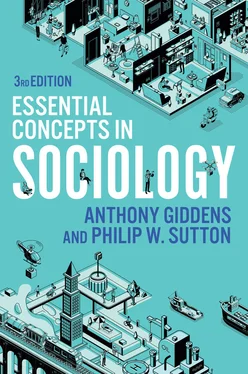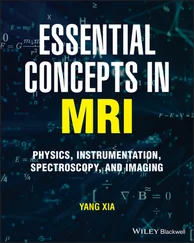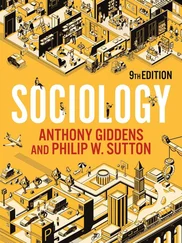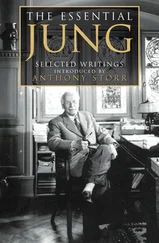1 ...6 7 8 10 11 12 ...20 There are many critics of postmodern theory. Some sociologists argue that post-modern theorists are essentially pessimists and defeatists who are so appalled by the dark side of modernity they would jettison its positive aspects as well. Yet there are clear benefits to modernity, such as the valuing of equality, individual freedom and rational approaches to social problems. Some of the social changes described in postmodern theory are also poorly supported by empirical studies. For example, the idea that social class and other collective forms no longer structure social life, leaving individuals at the mercy of media imagery, is an exaggeration. Though there are now more sources of identity, social class remains a key determinant of people’s social position and life chances (Callinicos 1990).
Similarly, there is much evidence that the media do play a more important role than in previous periods, but it does not follow that people simply soak up media content. There is a large body of audience research which shows that TV viewers, for instance, actively read and interpret media content, making sense of it from their own situation. With the advent of the worldwide web there are also many alternative information and entertainment sources, many of which are based on interactionsbetween providers and consumers, generating more rather than less critical comment and evaluation of mainstream media output. Finally, even if some of the changes proposed by postmodernists are genuine and influential, the evidence that they add up to a radical shift beyond modernity remains a matter of theoretical debate.
The concept of postmodernity was bound to be controversial given that sociology itself is rooted in a modernist approach. What would be the point of sociology if we gave up on trying to understand and explain social reality and to apply that knowledge in order to improve it? Nonetheless, postmodernity has had a longerlasting impact on the discipline. The opening up of plural viewpoints and diverse interpretations of the same social reality means that sociologists can no longer assume an unproblematic common culture or shared values within society but have to be sensitive to cultural diversity.
The 1980s and 1990s saw a proliferation of books and articles on postmodernity and postmodern culture, but by the turn of the century the ‘postmodern turn’ appeared to be over as the concept of globalization rose to prominence across the social sciences. Some have argued that postmodern ideas were essentially an academic fashion that has now passed (McGuigan 2006; Nealon 2012). But is this correct?
Garnar (2020) argues that the concept of postmodernity is still relevant. Differentiating between postmodernism as a series of cultural phenomena and postmodernity as an epoch that moves beyond that of modernity, he argues that the former has seen significant shifts, while the latter continues to characterize our global age. In particular, Garnar (2020: 5–6) focuses on the role of digital technologies, arguing that ‘the postmodern condition is shot through with technology’ and that these are one element of the postmodern condition, alongside changes in production and consumption, global relations and structures of power. The internet, mass computing, tablets, smartphones, satellite and cable TV are all forms of ‘postmodern technology’ which encourage and facilitate the playfulness, heterogeneity and anti-hierarchical practices associated with the postmodern. And, to the extent that digital technology has become embedded in everyday life, then this can, arguably, be discussed as a postmodern age.
References and Further Reading
Baudrillard, J. (1983) Simulations (New York: Semiotext(e)).
__ (1995) The Gulf War Did Not Take Place (Bloomington: Indiana University Press).
Bauman, Z. (1992) Intimations of Postmodernity (London: Routledge).
__ (1997) Postmodernity and its Discontents (Cambridge: Polity).
Callinicos, A. (1990) Against Postmodernism: A Marxist Critique (Cambridge: Polity).
Garnar, A. W. (2020) Pragmatism, Technology and the Persistence of the Postmodern (Lanham, MD: Rowman & Littlefield).
Kumar, K. (2005) From Post-Industrial to Post-Modern Society (2nd edn, Oxford: Blackwell).
Lyotard, J.-F. (1984) The Postmodern Condition (Minneapolis: University of Minnesota Press).
McGuigan, J. (2006) Modernity and Postmodern Culture (2nd edn, Buckingham: Open University Press).
Nealon, J. T. (2012) Post-Postmodernism: Or, the Cultural Logic of Just-in-Time Capitalism (Stanford, CA: Stanford University Press).
Rationalization
Working Definition
A long-term social process in which traditional ideas and beliefs are replaced by methodical rules and procedures and formal, means-to-ends thinking.
To act in a rational way means to act reasonably and to think through the action and its consequences before performing it. The philosophical doctrine known as rationalism, which originated in the seventeenth century, contrasted knowledge based on reason and reasoning with that rooted in religious sources and received wisdom. Clearly, rationality has its origins in the connection between thinking and doing and the production of knowledge. In sociology, the theory of rationalization in societyat large refers to a process rather than a fixed state of things and is central to the work of Max Weber. For Weber, rationalization and the elimination of magic was a long-term, world-historical social process that underpins any realistic understanding of the distinctiveness of the period of modernity. In more recent studies, debates have focused on whether the rationalization process has stalled as religious and spiritual beliefs appear to have risen to prominence again, or whether the process continues, albeit in new forms.
Meaning and Interpretation
Because Weber’s rationalization thesis has been so influential in sociology, we will concentrate on this rather than on philosophical arguments around reason and rationalism. Rationalization is a process of change, beginning in the West, during which more and more aspects of social life come to be shaped by means-to-ends calculations and matters of efficiency. This is in stark contrast to earlier periods, in which traditional practices, customary actions and emotional commitments dominated people’s thoughts and actions. Weber saw rationalization becoming cemented by the development of capitalist economics and its need for rational accounting and measurement, but also by the growth of scientific institutions promoting a rational outlook and by bureaucracy, which became the dominant, most efficient form of organization.
Weber discussed rationality in terms of four basic types: practical, theoretical, substantive and formal (Kalberg 1985). Practical rationality is in evidence where people generally accept the situation and their actions are guided by essentially pragmatic considerations of how they can make the most of it. Theoretical rationality exists where people try to ‘master reality’ by thinking through their experience and finding a meaning in life. Philosophers, religious leaders, political theorists and legal thinkers may be seen as adopting forms of theoretical rationality. Substantive rationality directs actions according to a cluster of values in a particular sphere of social life. For instance, friendship relations tend to involve the values of mutual respect, loyalty and assistance, and this value cluster directly frames people’s actions in this area of life.
Читать дальше












